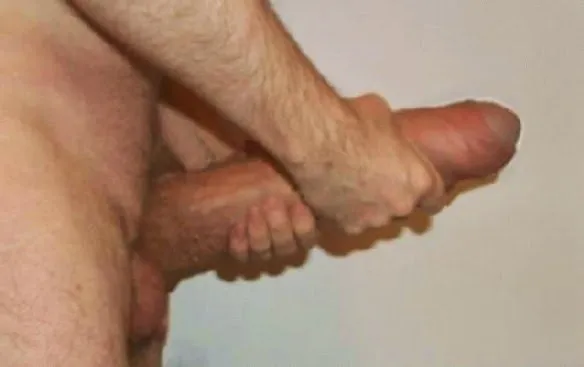Unleash your curiosity as we journey into an erotic expedition, delving deep into the realm of male animal genitalia. Prepare to embark on a sensory extravaganza, where words become explicit brushes, painting a vivid picture of nature’s raw sexual artistry. This exploration is dedicated to those eager for knowledge, especially concerning the endowed creatures of the animal kingdom, for it is time to celebrate and savour every intricate detail of these fascinating male appendages.
In this article, we tease out the threads of phallic mysteries, exploring the captivating intricacies of size, shape, and the sheer prowess these organs possess. From the mighty pachyderms to the stealthy felines, get ready for an unadulterated, raw showcase of nature’s ingenious designs. Feast your imagination on a provocative display as we present: “An In-Depth Exposition of Male Animal Virility.”
Let the journey begin, one that promises to be both visually magnificent and intellectually stimulating, highlighting the sheer diversity in nature’s approach to virility.
This tantalizing prelude sets the stage for an uncensored exploration, catering to those seeking an unapologetic examination of animal erotica in its purest form. Get ready to measure, compare, and admire—an adventure awaits!
1. Curious Cases of Priapism
The animal kingdom boasts a curious phenomenon known as Priapism, where a male’s penis remains engorged for an unusually extended period. This section delves into some intriguing instances of this condition:
- The Perpetual Priapism of Beavers: These semi-aquatic mammals possess a fascinating penis anatomy. When erect, it forms a ’stud tail’, which, interestingly, leads to the beaver’s penis bone (baculum) protruding externally—a rare occurrence in mammals. This bony structure can remain extended even after the penis itself has deflated, creating a peculiar priapic state.
- All-Year Arousal for Sealions: A curious case exists among certain sealion species, where males maintain a semi-erect state throughout the year, regardless of mating season. This constant preparedness ensures they are always ready for reproductive opportunities.
These peculiar priapic conditions are often nature’s way of ensuring successful reproduction. Such curiosities in the animal kingdom offer a unique perspective on sexual anatomy and behavior, challenging our perceptions of what is ‘normal’ in the realm of male sexuality.

2. Evolutions Design: The Optimal Shape and Size
When it comes to male animal genitalia, size and shape matter, but not in the way one might assume. The design of the penis in the animal kingdom is a fascinating testament to the principles of natural selection and evolutionary adaptation. Each species has its own distinct version, engineered to serve specific biological purposes and maximize reproductive success. So, what are the driving factors behind this evolutionary design process, and what penile features provide an edge in the wild?
Here are some of the key elements that contribute to the optimal design of the penis in various male animal species:
- Length: Longer penises offer significant advantages, as exemplified by barnacle geese. During copulation, the male needs to extend around the female’s posterior, and the elongated shape allows him to achieve this with ease.
- Shape Adaptation: Unique shapes can aid in mating and increase sperm competition. A curved penis can navigate through complex reproductive anatomy, as in the case of ducks, while certain species with more prominent glans (such as canids) may benefit from added stimulation for the female.
- Bone or No Bone: While some animals like dogs and cats have a bone in their penises for stiffness, others, like humans and horses, rely on blood flow. A bony penis offers more rigidity, which can be essential for species where the female may be less receptive or cooperative during mating.
- Spines and Textures: The presence of spines, ridges, or textures serves a dual purpose. These features might increase stimulation and hold the penis in place, improving the chances of successful fertilization. For example, the penis of the Comanche walking stick has lateral spines forming a heart shape, providing a snug fit in the female reproductive tract.

3. Strategies for Successful Mating: Unlocking the Secrets of the Phallus
The animal kingdom boasts a diverse and captivating array of mating strategies, and the male phallus plays a pivotal role in this captivating drama. Some species have evolved highly specialized adaptations, offering a fascinating glimpse into the intricacies of reproductive success.
- Articulated Contortions: Certain species, like the Acropora coral, feature polyps with articulated, contortionist-like tentacles allowing for strategic positioning during mating. This ensures increased chances of successful fertilization.
- Spiny Sensations: Male thorny-headed worms possess a spined, slug-like penis, which expands dramatically when turgid. This adaptation not only aids in fertilization but also facilitates successful mating even in the most challenging environments.
- Echinoderm Extensions: Starfish and urchins have engaged in a veritable arms race of reproductive strategies. Male urchins, for example, may extend their spines during mating to grab onto the female, ensuring proximity and potential fertilization.
These peculiar adaptations among countless others reflect the diversity of evolutionary strategies aimed at successful mating and species preservation. The complexities of the animal phallus continue to captivate and intrigue, revealing fascinating insights into the natural world and its intricate design principles.

4. Penis Oddities in the Animalia Kingdom
The animal kingdom never fails to surprise, especially when it comes to the unique traits of male genitalia. The penis, an organ of reproduction, takes on various intriguing forms and functions, showcasing the incredible diversity within the realm of zoology.
In this fascinating journey through nature’s design, let’s explore some of the peculiarities and adaptations:
• The bacon strip penis of the Argentine Lake Duck is an extraordinary sight – a lengthy, coiled tube, bright red and resembling its culinary namesake.
• Some birds, like the ducks and geese, have corkscrew-shaped penises, a design that helps them navigate the intricate twists and turns of female reproductive tracts.
• Meet the Loxosomella tridens, a tiny worm with a peculiar talent. It can regrow its penis in just 24 hours, a remarkable regenerative ability.
• The echidna is a creature of intrigue; it has four penises, but only two are used during mating, leaving the others dormant. This evolved strategy reduces the risk of damage to this vital organ.
Concluding Remarks
# The Enigmatic Realm of Male Animal Reproduction
As we conclude this captivating journey into the male animal kingdom’s reproductive anatomy, we have merely scratched the surface of nature’s intricate design. From the microscopic to the majestic, the penises of male animals are not just organs; they are masterpieces of evolution, each with its own unique narrative.
In this exploration, we have encountered the miniature marvels of insect phalluses, the agile appendages of aquatic creatures, and the mighty members of land-dwelling beasts. The bizarre and the beautiful coexist in this realm, challenging our preconceptions of anatomy. We’ve witnessed the intricate mating rituals and adaptations that ensure the survival of countless species, each strategy more fascinating than the next.
Through these diverse penile designs, nature showcases its boundless creativity and reminds us of the extraordinary diversity of life on our planet. Every penis tells a story of survival, evolution, and the relentless pursuit of life.
Thus, the world of male animal penises is not merely about biology; it reveals the very essence of existence, where every creature, no matter how small or grand, plays a vital role in the grand tapestry of life. As we part ways with these fascinating subjects, let the knowledge of their reproductive wonders inspire further curiosity and appreciation for the natural world’s untold stories.
The end.


